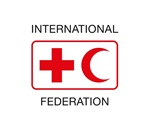A specialized reception centre to assist migrants with psychological needs.
The Belgian Red Cross operates CARDA, a specialized reception centre located in Bierset that exclusively provides support to asylum seekers with psychological issues. Asylum seekers with psychological needs were not being adequately catered to in the normal reception system, so CARDA was created to fill the gap. The centre provides residential counselling to asylum seekers with a focus on those in need of intensive care. CARDA treats people who suffer from depression, post-traumatic stress, psychosomatic symptoms and behavioural problems, but does not cater for people in need of more specialized care (addiction, severe psychiatric issues).
CARDA has the capacity to host 40 people, including singles, couples and families, and has five places specifically reserved for unaccompanied minors. The centre is staffed by 23 specialists, including psychologists, educators, nurses and a psychometrician. These specialists provide psychological assessments and decide whether to keep asylum seekers for further care in the centre, recommend they attend regular sessions, or discharge them. CARDA also works in close cooperation with psychiatric hospitals and is able to refer acute cases in need of further treatment to these institutions. Asylum seekers in other reception centres in Belgium can be hosted at CARDA during crisis periods or when they need psychological treatment. Staff from other reception centres have been trained to identify if an asylum seeker is showing symptoms of psychological issues and to refer them to CARDA for further support.
49 people in residential and 69 in ambulatory for 2015.
Design. [P1] Directly focused on psychological needs of asylum seekers.
Implementation. [P6] Works together with other reception centres to identify asylum seekers in need of psychological support, works in close cooperation with other psychiatric hospitals.
- As this was the first and only centre for asylum seekers with psychological issues in Belgium, the model had to be built from scratch.
- It is difficult to explain that they are not psychiatric centres and that there are some limits to the services provided.
- Important to communicate regularly about the practices used in the centre.
- Informative to exchange good practices with European partners.
Smart practices
Smart practices report and database survey
About the report
People migrate in pursuit of a better life for themselves and their families. As described in the International Federation of Red Cross and Red Crescent Societies’ (IFRC) Policy on Migration, “migrants are persons who leave or flee their habitual residence to go to new places – usually abroad – to seek opportunities or safer and better prospects.
Read more
About the International Federation

